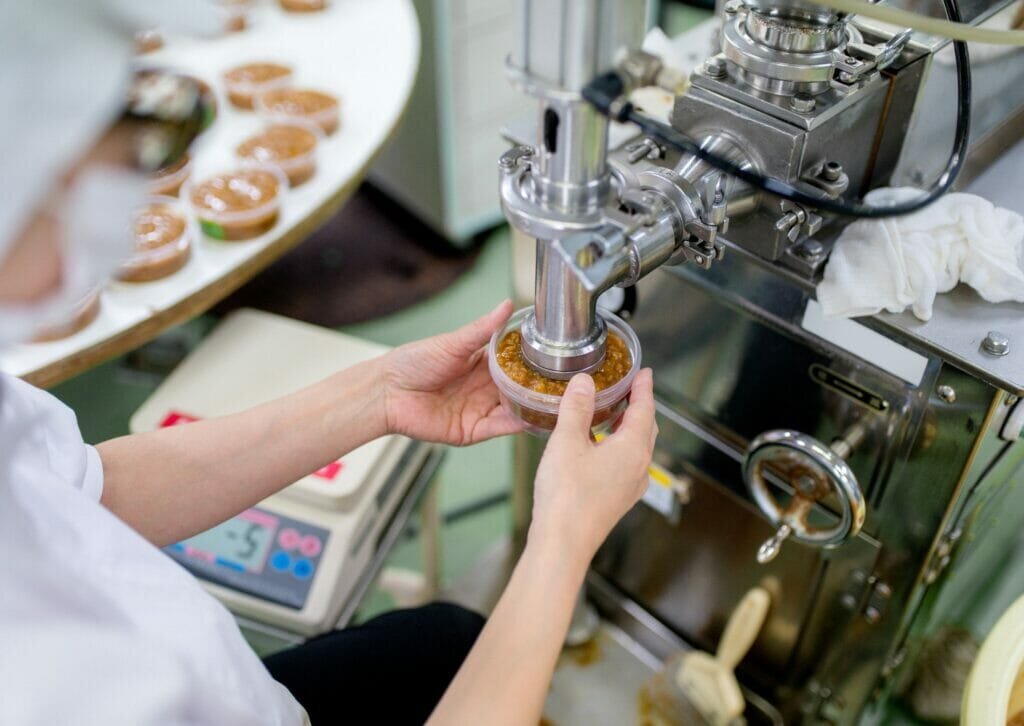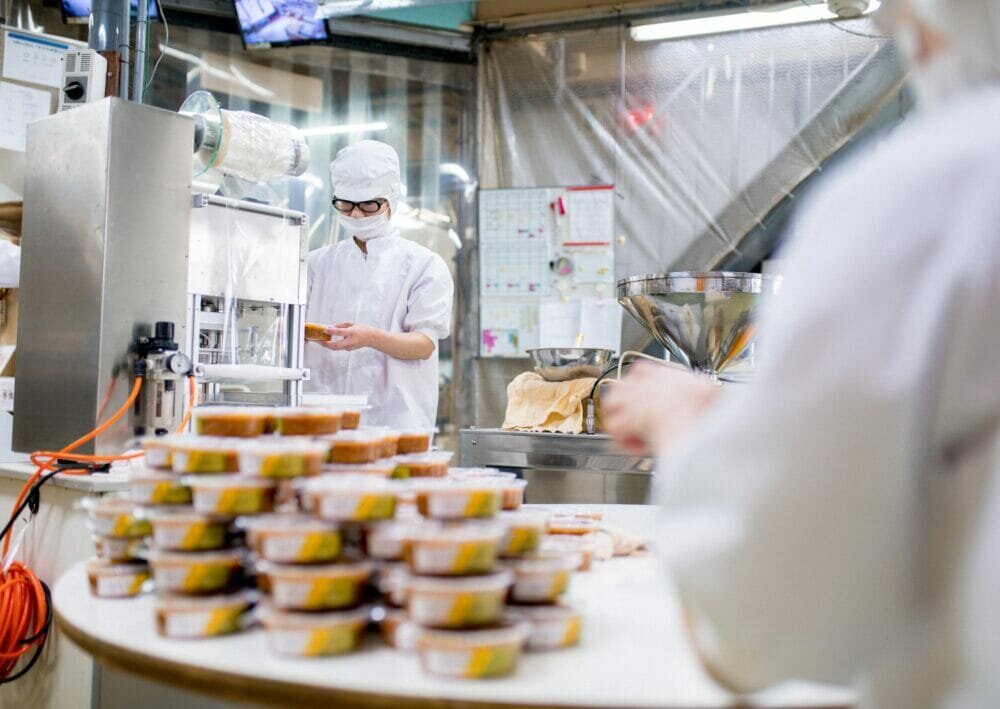
- Food & Drink firms could claim tens of thousands back in R&D tax relief
- Just 1% of R&D claims in 2022 came from the food manufacturing sector
With the UK’s love of food and drink, it’s no surprise that exciting innovations are always happening in the industry, with food and beverage businesses constantly researching, developing and revolutionising various parts of the sector.
The number of food companies claiming R&D tax credits in 2022 increased versus the year before in the published statistics, however the average claim value sits in the lower quartile in terms of claim amounts at around €21,573, likely as a result of the COVID pandemic. In 2022 there were 810 accommodation & food R&D SME claims, amounting to 1.03% of the total 78,825 claims. The claims value in this sector totalled approximately €17.4 million – just 0.4% of the whopping €4.89bn total.
The HMRC Research and Development Tax Scheme was created to encourage business innovation and stimulate the economy through supporting firms to bring new products and services to market. Yet, due to time constraints, lack of awareness and doubts around eligibility or the legitimacy of the incentive, there are thousands of companies that are not currently taking part in the scheme, particularly within the food and drink manufacturing industry.

Research and Development Specialists Ltd (RDS), an expert in helping companies to navigate the Government scheme, is reaching out to firms in the food and drink sector, after numerous successful claims for similar businesses; most of which had researched and developed new products or production processes.
RDS successfully claimed £55,000 last year for a well-established company with 15 years history of supplying process and packaging equipment to the growing craft brewing industry, after the fast growth of canning within the brewing industry led to the business developing their own bespoke beer canning system for new and existing customers.
Mark Joyner, MD at RDS, based in the North of England, wants to demystify R&D in a bid to reach more food manufacturing firms that could benefit from a cash influx of hundreds of thousands of pounds.
“We’ve previously had success within the food and beverage sector, finding that companies working in this area have invested in qualifying activities like conducting research into health and ingredients or developing new equipment or processes to improve the scale, speed or efficiency of manufacturing, bottling, packaging or canning. The research and development related to this then makes them eligible for tax credits, but that’s not widely known. Lots of companies are missing out.”
What is R&D?
Research and development (R&D) tax credits are a valuable government incentive that rewards UK businesses for investing in innovation. It is a powerful source of funding for businesses looking to grow and develop new products, services, procedures, and internal systems.
There is a misconception that to qualify for R&D tax relief then a business must employ people in lab coats and be undertaking scientific research, but that is not the case. Any type of research and development could qualify.
Some examples of R&D for the food and drink industry that would qualify include:
- Developing a new food or beverage product
- Creating new chilling and preservation methods to speed up production without affecting the texture of the product
- Experimenting with reformulation to improve nutritional requirements
- Developing new meat-free or free-from product lines
- Creating sustainable, eco-friendly living environments
- Improving functionality of product packaging to increase shelf life, improve sustainability and recyclability or reduce costs
Which businesses can claim?
Any UK limited business can claim. There are no restrictions on the type or size of business although there are different types of R&D scheme depending on whether you fit HMRC’s guide as being an SME or large company.
For the SME scheme, a company must employ less than 500 people and have a turnover of less than £85m or a balance sheet total of less than £73m. An SME’s eligible R&D costs receive an additional 130% deduction when calculating the taxable profit.
Eligibility is focussed on the research project rather than the type of business. Typically, an R&D claim can be submitted for a business’s current and previous financial year.
Some R&D project criteria to be aware of…
The project must relate to your company’s trade, and you must be able to explain how the project:
- Looked for an advance in science and technology
- Had to overcome uncertainty
- Tried to overcome this uncertainty
- Could not be easily worked out by a professional in the field
Does the project have to be successful?
There is no rule that says you need to have a finished product or service brought the market. The key point here is that the research and development phase is enough for you to qualify.
How do I claim the money?
For profitable businesses, the benefit is applied as a reduction in corporation tax. If a claim is historical, the monies will be claimed back as a repayment of overpaid corporation tax.
For companies operating at a loss, the R&D claim will increase the loss arising. This loss can then be set against prior and future profits of the company, or it can be turned in to a cash repayment by using a process HMRC calls ‘surrender’, whereby the business takes a slightly lower benefit percentage for the ‘cash now’.
It sounds too good to be true…
R&D Tax Credits are not PPI for businesses. It is a legitimate Government-backed incentive to encourage innovation and has been operating in the UK since 2000.
That said, there are intricacies, including when claiming for other tax relief incentives, as well as criteria to be met, that can make the process seem overwhelming. That is why employing a R&D specialist such as RDS can help take the headache out of making a claim.
More information on R&D tax relief can be found on the Government’s website here: https://www.gov.uk/guidance/corporation-tax-research-and-development-rd-relief
Mark Joyner added: “If I were to say to you, I’ll give you £46,347 for your business, I’m sure there would be lots of things that, as a business owner, you could do with that money. That figure represents the average amount of a successful claim through the HMRC R&D Tax Incentive in 2022. It is not a scam or a way to play the system, yet for many reasons, companies that are eligible are not claiming the money to which they are entitled.
“A lot of people think it sounds too good to be true, some are time poor and don’t have the time to investigate the scheme properly and some are just unaware that it even exists. At RDS we simplify the process and take a lot of the leg work away from busy accountants, senior teams or business owners.
“Something that sets us apart is that we’re completely transparent and we give our clients full sign off for a claim at various stages of the process. We hand over the final submission to the in-house team so that they know the full figure they’re claiming for, and our costs are recovered only when a successful claim is submitted, approved, and credited. For us, building trust and working in partnership is the most important part of the process.”
For more information visit https://randdspecialists.co.uk/.








